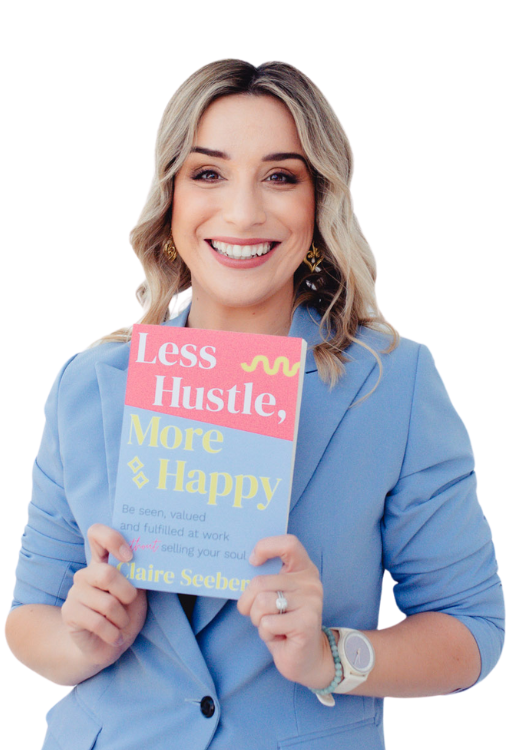There is a lot of conversation about the importance of playing to your strengths at work. And so there should be. There is huge value that comes from being able to utilise the talents you already have to help deliver on outcomes that drive an organisation forward.
Not to mention, it is far more enjoyable for most of us to focus on the things we are already good at, as opposed to slugging away on tasks that require skill sets from us that we simply aren’t as competent in (hello Excel spreadsheets!).
Here is what I have observed through when it comes to conventional advice about playing to your strengths - it doesn’t tend to cover much beyond that - just, “play to your strengths” and the rest will follow.
What about if you don’t know your strengths though? Or, what about if you aren’t sure how the strengths you have could translate into effective outcomes?
My view on this is that there are actually FOUR critical parts that form part of the ‘play to your strengths’ equation, and all four need to be in sync in order for you to be effective.
Here’s my formula on what it really takes to play to your strengths well:
Know them + Own them + Leverage them + Know the point of reverse impact
Let me explain.
Know them
This one is probably the most obvious. To play to our strengths in the workplace and essentially get better results in an easier way, we must KNOW what our strengths are. But, where to start on this if you aren’t sure is the question I often get asked. Reflect back on past feedback you’ve had, performance conversations, positive recognition you’ve received - are there themes in the commentary you’ve received? Consider the kinds of things people regularly come to you for help or advice on. What are you known for? What kinds of skills do you flex in your day to day? Getting curious and reflecting on these questions, and then further validating them by seeking some specific feedback will help you start to paint a picture of what your unique strengths are.
Own them
Simply knowing what you think your strengths are isn’t enough. You’ve got to be able to own them confidently too. Why? Because just being able to know you are good at public speaking, doesn’t mean that you’ll actually utilise it intentionally to help increase your profile at work if you aren’t prepared to really own that strength. Knowing that you have certain strengths, but having an inability to state that you do with confidence isn’t going to help you. In Australia in particular, we have a lovely little thing called ‘tall poppy syndrome’, whereby we like to tear others down for saying or being good at things. This, I often find gets in the way of people owning their strengths with confidence and conviction. And yet, if I asked them to state their weaknesses, they’d rattle them off with ease. In order to really play to your strengths well and to be sought out for new opportunities at work, you MUST be able to own them - say them out loud to yourself, and to your key stakeholders when needed.
Leverage them
Now that you know your strengths, and own them with confidence (AKA you could sit in an interview and talk proudly and with conviction on why these are your strengths), the next part is about how do you leverage them to get outcomes at work? How do you use what you’re great at to achieve outcomes with and for other people?
In order to leverage your strengths effectively, you’ve got to step back and analyse when and how you can use them. For example, if you’ve identified that a strength of yours is a strong coaching style that gets people to open up and feel safe, think about what are all the ways in which you can leverage this in different parts of your role. Usually, you may just reserve this strength for the way you engage in 1:1s with your team. However, if you consider ways you can leverage it further, there are many opportunities. For example, this strength could be leveraged in group meetings and your ability to ask the right questions to get the right information and move a conversation forward. It could be leveraged in a conversation with key stakeholders through paraphrasing and showing them how you’re listening to their needs and what's important to them. Knowing how you can practically leverage a strength beyond just its obvious use, is key to maximising it.
Know the point of reverse impact
Lastly, and most importantly, as this is what is usually missing in the conversation about strengths play - know your point of reverse impact, or when a strength is no longer a strength and may end up hindering you.
There is absolutely such a thing as overplaying a strength that it can end up working against you. For example, I recently had a client who identified that a strength of theirs was being able to distil complex spreadsheet data into stories that people could understand and make better decisions from. GREAT STRENGTH! However, they also realised, and had had feedback that their ability to support others with this who may not be as quick as they were in connecting the dots on data was now starting to work against them. Their frustration in these moments was clear, and their strength was now actually starting to work against them. Knowing the point of reverse impact of a strength is critical in order to lead yourself effectively, but also to lead others and get the outcomes that you want to be.
Bottom Line
Playing to your strengths is something we can ALL do - why wouldn’t we? After all, it takes considerable time to turn a weakness into something mediocre, versus turning a strength into a superpower. But, here's the thing - there is more to just deciding you’ll play to your strengths. You must consider all parts of the strengths equation in order to do it in a way that sees you yielding the return you want to be. Know them. Own them. Leverage them. Know the point of reverse impact.
Could you or your team benefit from a conversation about strengths and how to use them at work to get better outcomes? Reach out and let’s discuss how we can do that together through one of my impactful and practical workshops.






